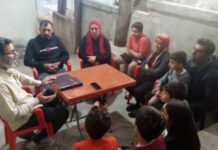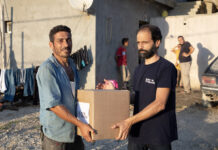Houston, TX (ANS) – When I joined the Air Force right out of high school, I immediately began to learn more about sharing life together. As new recruits we received uniforms that looked alike, and we did everything together. We learned to march together, we eat together and we slept together in the same barracks (living quarters). Life in the military is very different than civilian life. Civilian life is more individualistic and sometimes more isolationistic. Those concepts are often prevalent in the church world as well, especially in the Global North.
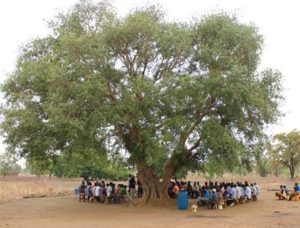
Power of Corporate Witness
The better we understand the nature of the Body of Christ, the more effective we can become as witnesses to the outside world. When we consider our mandate as followers of Jesus, as disciple makers, it’s important to realize that God never intended for us to operate in isolation. We are actually to function as teams or communities of Jesus-followers. Our influence and impact on the world around us, as salt and light. will be determined to a great extent by our living and sharing life together with other members of the Body of Christ.
Value of Listening and Filling the Gaps
So often over the years when I’ve had conversations with people about the Lord, I discover that someone else has already had some spiritual influence on them. They have had some kind of exposure to the gospel. Many people, especially in the Western World or North America, have some awareness of church, the Christian faith or religious traditions. However, what is often missing is a biblical understanding of what is involved in having a relevant relationship with the Living Christ. Sometimes, all it takes is asking a few questions, listening and filling in the gaps. Everyone does not necessarily need to hear the same presentation and the Holy Spirit is faithful to enable us to discern how much and what we need to share.
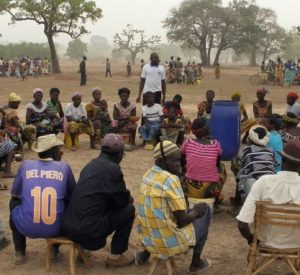
Sowing, Watering and Reaping
On occasions, especially traveling internationally, I have encountered those who have never heard the name of Jesus or seen a Bible. In those cases there’s an opportunity to sow a seed or testify of the character, goodness and grace of God. It is reassuring when we know that we can be a link in a chain of influence, and a witness in bringing others to the Lord. Some sow, some water and others reap the harvest, but it is God who gives the increase, as we read in Scripture.
Oneness and Unity
In our role as followers of Jesus (disciple makers) we don’t have to work alone. It’s usually the community of Christ-followers that has the greatest impact. That may be why Jesus prayed that we would be one, come to complete unity, so that the world would know that God sent Him. In that same chapter of John 17, Jesus tells us that “as the Father sent Him, He is sending us.” That is to be a physical, visible expression of the invisible God, and to communicate the Good News of Jesus to everyone.
Impact of Relationships
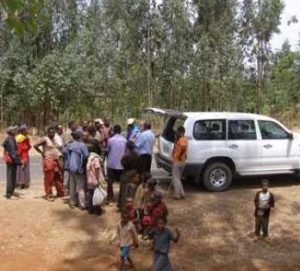
It’s been a great blessing to have had many influences in my own spiritual journey. The Lord has used many individuals in discipling me, some of those were short-term and others long-term relationships. Likewise, I’ve had the joy of leading many to Christ and discipling them. However, it’s not a matter of one-on-one relationships as much as a collective impact of a number of witnesses. Each of us can be more effective in advancing the Kingdom of God when we are sharing life together. That would include the corporate witness of the Body of Christ, but also realizing the impact of entering the work of others and joining the redemptive activity of God.
Importance of Collective Memory
One of the important principles we emphasize in our orality training is the value of sharing life together and the collective memory of the group. When we learn together and communicate orally as a community, it’s very different than individual text-based methods. Repetition and the relational, communal methods are strategic aspects in the orality movement. It is amazing to observe the incredible memories of those we work with in Oral Cultures. Their stories and traditions are passed on from one generation to another with amazing accuracy. It gives us a sense of how God preserved the accuracy of His Word in Oral Traditions, before it became a written text.
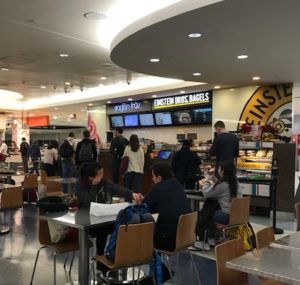
Relational, Communal, Oral Cultures
There is so much we in the modern Western World can learn from those in the more relational, communal Oral Cultures, primarily in the Global South. Not only about the transfer of information, but also having greater unity and cooperative impact on those around us. The concepts of Orality are having increasing impact in the Global North. They’re creating more intimacy and greater unity in local congregations, as well as helping businesses to improve their corporate cultures.
Orality’s Multiple Applications
Storytelling is becoming a major topic these days in the church, as well as the business community. Bible Storying and storytelling are excellent introductions to the larger domain of Orality. The global community of learning and practice in the Orality Movement is continuing to grow through cross pollination and sharing of methods and strategies. Many more pastors and church leaders are beginning to recognize that the concepts and practices of Orality are beneficial for in multiple areas. Some of those are leadership development, racial reconciliation, trauma therapy, community development, public health and hygiene education and other applications.
For more information about Orality resources, training opportunities, and other conferences and events, visit – www.orality.net or www.water.cc/orality.



